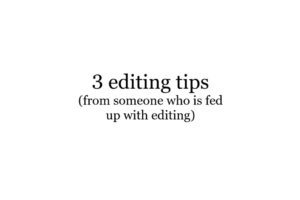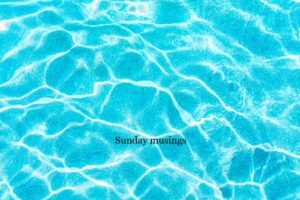I don’t really like lists. No one should have a definitive, unchangeable order of favourite things for anything, and if anyone does it means they’re stagnant in life and refuse to experience anything that might challenge their fragile beliefs.
I feel the list below would more accurately be described as ‘my possible list of 5 favourite (arguably) classic dystopian novels (at the moment) out of the books I have read (so far up until May 2018)’. However, this is a terrible title for SEO reasons, so without further ado this is the list that no one asked for, not even me: My top 5 dystopian novels.
5. The Handmaid’s Tale by Margaret Atwood
If you can remember exactly where you were when reading a particular novel, it must have been bloody good. Yes, I happened to be in Iceland when I first read The Handmaid’s Tale, which is an impressive setting by itself, but reading the novel was one of the memorable parts of that trip.
I think it’s Atwood’s subtlety that I love most with this book. Ignore the hype over the TV series – the show is nowhere near as intricate, harrowing and poignant as the book. The series is also far too positive and neatly tied together, which I didn’t like as I felt they shouldn’t have sugar-coated the issues it raises. That might not necessarily be a plus point for anyone else with a more positive outlook on life, but that’s by the by.
4. We by Yevgeny Zamyatin
I reread this novel not long back as part of my 2018 reading challenge, and if it wasn’t for that I might not have put We in this list. Before picking it up again I remember enjoying it and recommending it to those I knew who liked dystopian literature (so, about two people), but I don’t remember being transfixed with it. It was good, but not amazing.
Well, with a second read I can safely say I misremembered the experience. Or I just appreciated it more with a second read, I don’t know. Either way, We is such a brave, powerful book that I ended up looking into Zamyatin’s experiences in Russia for weeks afterwards. He was exiled for writing the story, which to me really adds to its importance as a piece of fiction.
3. Lord of the Flies by William Golding
I’m rereading Lord of the Flies at the moment, and after the first few lines on the first page I was overwhelmed with a whole host of emotions – the strongest amongst them being dread. Knowing what’s going to happen in this story doesn’t make it any easier to stomach. If anything, it makes it worse.
This novel is truly painful to read. Whether it’s because the characters are only children or because the reader is continuously confronted with humanity’s flaws, it’s hard to tell, but this is a novel that will always stick with me. It’s a harrowing experience, but it’s also one of the rawest examples of humanity you can ever wish to encounter in fictional form. It’s brutal, but I’ll never run out of things to say about it or ways of studying it. It’s a reminder that we are nothing but animals, and we’re always mere steps away from descending into our primal states.
2. I am Legend by Richard Matheson
If you want a (relatively) fast-paced, action-packed dystopian novel that has an ending that will blow your socks off, purchase I am Legend immediately. I wasn’t expecting much when I read it having watched both movie adaptations of it, but my god it’s good.
I must have read this novel in a matter of days, and the only reason it wasn’t a matter of hours was because I had to work and eat and sleep and stuff. Fascinating, bleak and an absolute compulsive read.
When compiling this list I didn’t think I’d have put this as number 2, but the more I thought about it the more I realised I couldn’t dismiss such an all-rounder. Great for dystopian lovers and general enjoyers of sci-fi.
1. Nineteen Eighty-Four by George Orwell
I wish I could surprise everyone by writing down a completely different title, but my need to be authentic overrides my need to be interesting. Nineteen Eighty-Four is iconic, fascinating and not only a perfect snapshot of the atmosphere felt in the 1950s, but also a relevant warning today. Yes, there is a bit in the middle that is a teensy bit wanky and dull, but as a piece of literature you can’t get much better than this.
I remember the first time I read it. I remember the last time I read it. I remember writing essays and blogs and comments online about it. I remember watching a play based on it and tearing up. I remember talking about it, explaining its intricate meanings to people who didn’t care the least bit about it, and I even remember looking at artwork online for it – because that was yesterday.
An imperfect book on an imperfect subject matter, written by an imperfect writer has come top of my imperfect list.


Leave a Reply